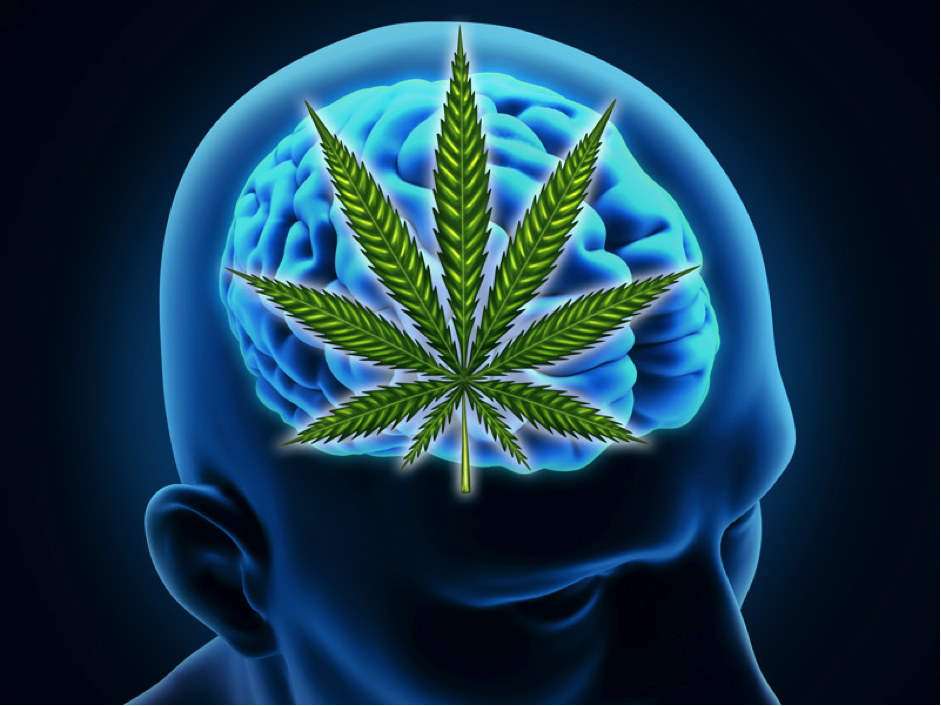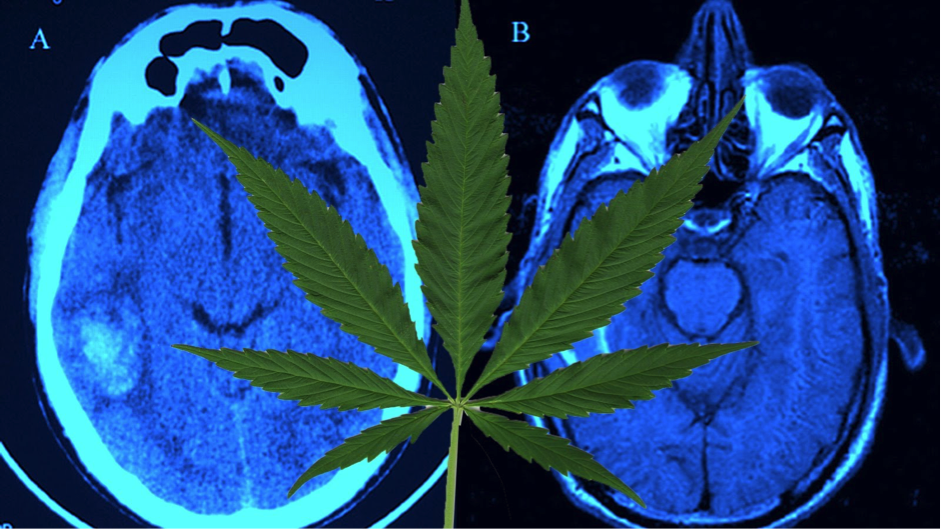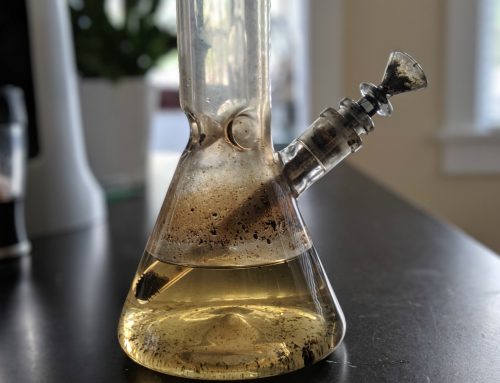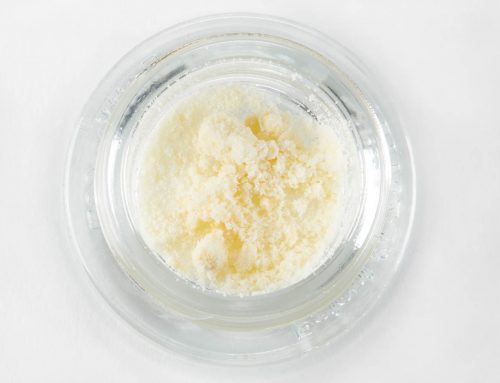It’s becoming clear that when it comes to the incredible medicinal properties of cannabis, we’ve barely scratched the surface of what’s truly possible. Just when it seems as if scientists have made the most extraordinary breakthrough to date, along comes another handful to take things several steps further. Even in the instances of certain diseases and conditions that were thought to be incurable, medical cannabis is proving to be almost limitless in its potential.
Recently, it was discovered that cannabis does not in fact have the harmful effects on long-term cognitive ability, IQ and various other brain functions, as critics have been claiming for many decades. On the whole, there is little to no evidence to suggest that cannabis has any detrimental effect whatsoever on cognitive capacity in later life, regardless of consumption habits as a teenager or young adults. In fact, there is growing evidence to suggest that when consumed strategically at specific times in life, cannabis can actually be beneficial for cognitive health.
Cannabis to Reverse Cognitive Decline?
New research suggests that small, daily doses of cannabis extract could potentially slow or even reverse the cognitive decline that often accompanies the aging process.
A study carried out at the University of Bonn returned startling and encouraging findings, which could have enormous significance in the fight against age-related cognitive decline and various conditions including Alzheimer’s. The researchers were intrigued when it was discovered that while low doses of THC administered on a regular basis appeared to have a negative effect on the learning and memory of younger mice, the effect was actually reversed in the older ones. Their learning and memory performance was in fact noticeably improved, after being administered regular doses of THC.
In theory, the researchers believe that it may be possible to replicate the same effect in human beings, by using a controlled treatment which will not have the usual psychoactive effects of THC. The initial trials have been so successful that the research team now intends to begin experimenting with human subjects before the end of the year.
“If we can rejuvenate the brain so that everybody gets five to 10 more years without needing extra care then that is more than we could have imagined,” said Andras Bilkei-Gorzo at the University of Bonn.
Cannabis and the Developing Brain
Research into the consumption of cannabis as a teenager or young adult has brought to light entirely contradictory evidence, with regard to its long-term effects on memory. While there’s no disputing the way in which a heavy or prolonged cannabis smoking session can result in very short-term memory loss for those involved, there’s still insufficient evidence to suggest that the effect can be in any way permanent or long-term. But what’s interesting is the way in which little to no research has been carried out into the way cannabis and its key compounds affect the brains of older people.
The new study, since published in the journal Nature Medicine, describes how THC in measured doses was given to mice every day of the course of a month. The mice involved in the tests were aged two months, 12 months and 18 months. At various intervals, tests were carried out to see how quickly and successfully the mice could navigate their way through a maze, along with how long it took them to recognise objects and other mice that were already familiar to them.
The younger mice, which hadn’t been provided with any THC, flew through all tests with incredible speed and competence. By contrast, the older mice that had not been given doses of the cannabis compound struggled. Interestingly, when THC was administered to test subjects across the age groups, there was a dramatic difference in performance across the board. While the younger mice suddenly appeared less capable than they were before, the older mice suddenly improved to such an extent that their performance was just about the same as that of the younger mice, before they had been provided with the measured THC. Even more incredibly, the beneficial effects demonstrated by the older mice continued for several weeks after the daily THC dosage had been withdrawn, while absolutely none of the mice across the board showed signs of in any way being ‘high’ as would normally be associated with THC consumption.
THC Effects on the Endocannabinoid System
“These results reveal a profound, long-lasting improvement of cognitive performance resulting from a low dose of THC treatment in mature and old animals,” the scientists wrote.
The results of the study were insufficient to produce a comprehensive conclusion, but the scientists believe that the sudden and notable brain function improvement is connected with gene expression restoration in the brain, triggered by the THC. It is known that THC has the unique effect on the endocannabinoid system in the brain, a biochemical pathway that becomes less active as the respective individual (or mouse) gets older.
“I’m sure that what we are seeing are the long-term consequences of normalising the system,” Bilkei-Gorzo added.
Former government drugs adviser and professor of Neuropsychopharmacology at Imperial College London, David Nutt, remains one of the most outspoken supporters of cannabis legalization, having been sensationally fired by the UK gov several years ago when his expert advice did not reflect the dated, illogical and uneducated views of lawmakers.
“The key question now is does the same apply to humans?” he commented.
“Clearly this needs to be tested, but it will not be possible in the UK due to the ridiculous restrictions on cannabis research occasioned by its being a schedule 1 drug.”
Exciting New Research Avenues
His sentiments were shared by University College London psychiatry lecturer Michael Bloomfield, who noted the potential for the discovery to serve as the first effective treatment against any number of neurological conditions.
“What is particularly exciting about this research is that it opens up a whole new chemical system, the endocannabinoid system, as a potential target for new avenues of research, which could include illnesses like dementia,” he said.
“However, we are still in very early days and further research is needed,”
“This means that the possibility of doctors potentially prescribing cannabis, THC or similar compounds for memory problems in older people is still a long way off.”
Studies like this really do highlight the nonsensicality of continuing to classify cannabis as an illegal substance with absolutely no redeeming or positive properties, which simply poses a threat to public health. It can only be hoped that at some point in the future when a new generation of politicians step in, the pointless propaganda perpetuated by those currently making the rules will be wiped from British politics once and for all.













